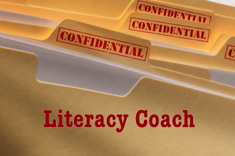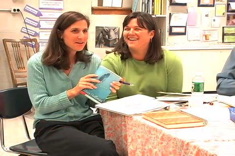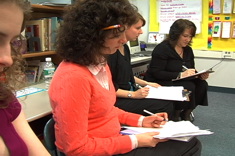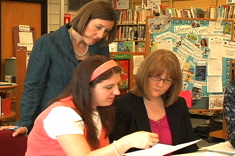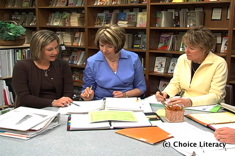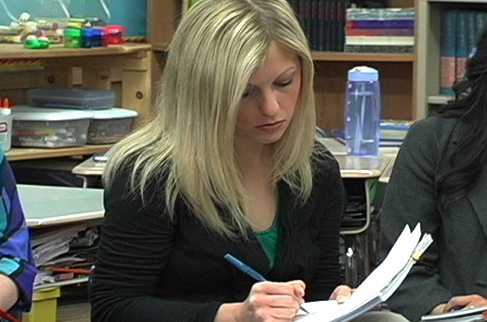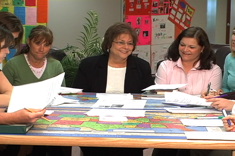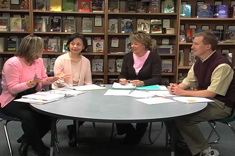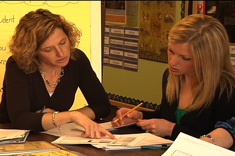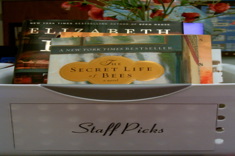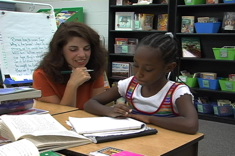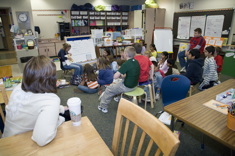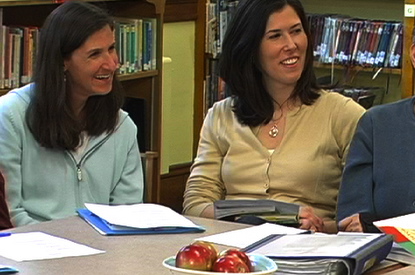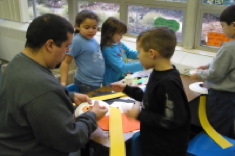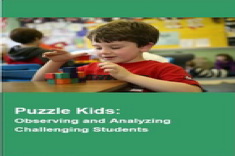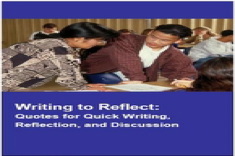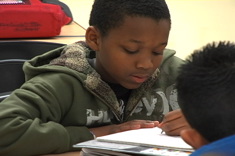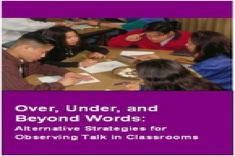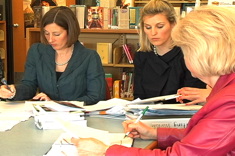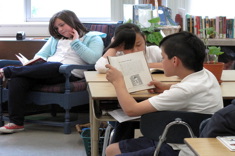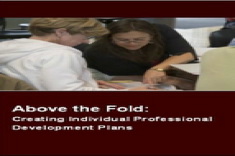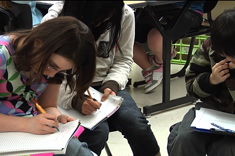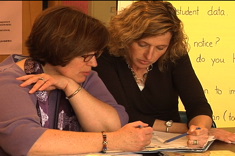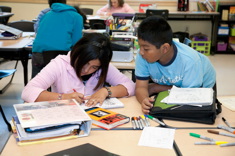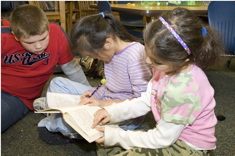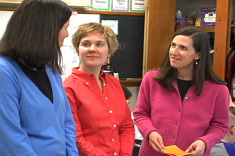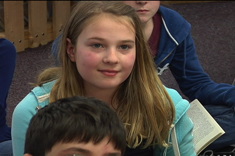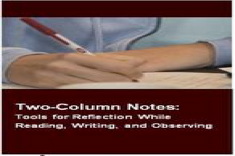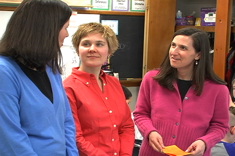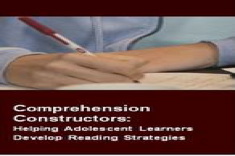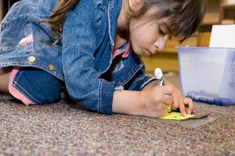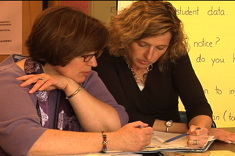Brenda Power
Brenda Power is the founder of Choice Literacy. She worked for many years as a professor at the University of Maine and an editor at Stenhouse Publishers. Her publications as an author include Living the Questions and The Art of Classroom Inquiry. She has worked as a book editor and video producer for many of the authors featured at this site.
All Content
September 11, 2020 Florence Genevieve Saperstein
Choice is the theme of this week’s newsletter.
September 4, 2020 A Specific No
Thoughtful reading response is the focus of this week’s newsletter.
July 31, 2020 The Importance of Routines
We look at routines and structures for learning in this week’s newsletter.
July 24, 2020 Christmas in July
We look at ways to learn student names and honor their history early in the year in this week’s newsletter.
July 17, 2020 Walking Tours
We look at ways to teach realistic and historical fiction in this week’s newsletter.
July 10, 2020 When Your Glasses Fall Into the Lake
We look at ways to reinforce learning after minilessons in this week’s newsletter.
May 29, 2020 Missing Hallways
We consider ways to boost summer learning in this week’s newsletter.
May 22, 2020 Write Now
We look at writer’s craft in this week’s newsletter.
May 15, 2020 Seeking Community
We celebrate families in this week’s newsletter.
May 8, 2020 Eagle’s Nest
We reflect on how to close out the year with read alouds and interviews in this week’s newsletter.
May 1, 2020 Virtual Third Things
Creative response from teachers and students is the focus of this week’s newsletter.
April 24, 2020 Truth and Judgment
Getting better feedback from teachers and students is the focus of this week’s newsletter.
April 17, 2020 An Amazing Time
This week we look at the gamut of emotions remote learning brings to teachers and students.
April 10, 2020 Savoring a Book Just Because
We consider journals and notebooks in this week’s newsletter.
April 3, 2020 Good Enough
We look at remote instruction and virtual lessons in this week’s newsletter.
March 27, 2020 New Plans
This week we look at teaching the youngest learners in literacy workshops.
March 13, 2020 Learn to Care
This week we look at teaching about characters in literacy workshops.
March 6, 2020 At Least No One Died
This week we look at self-assessment, the final installment in our two-part newsletter series on assessment.
February 28, 2020 Strengths Focused
This week we look at integrating test prep into literacy workshops.
February 21, 2020 A Place for Writing
This week we look at how to create cozy and safe learning spaces.
February 14, 2020 The Poem in Your Heart
This week we look at how to foster a love of poetry in literacy workshops.
February 7, 2020 Grammar’s Flexibility
This week we look at word learning in literacy workshops.
January 31, 2020 Creativity and Community
This week we look at partnerships in literacy workshops.
January 24, 2020 Kindness in the Storm
This week we look at how to help traumatized children in classrooms.
January 17, 2020 I See You
This week we look at visual learning and graphic novels in classrooms.
January 10, 2020 Nothing Buried Here
This week we look at tools for literacy instruction.
January 3, 2020 Letting Go
This week we look at teacher modeling in literacy workshops.
December 13, 2019 Norwich
This week we look at easy and fun classroom literacy events and celebrations.
December 6, 2019 Just Say Yes
This week we look at creative literacy instruction before holiday breaks.
November 22, 2019 Cue the Habit
This week we look at author studies in classrooms.
November 15, 2019 In Praise of Clutter
This week we look at how to use anchor texts in classrooms.
November 8, 2019 The Gift of Noticing
We look at reflection in this week’s newsletter.
November 1, 2019 Romancing the Em Dash
We look at how to teach conventions in this week’s newsletter.
October 25, 2019 Candy Bombs
We look at how to develop and use text sets in this week’s newsletter.
October 18, 2019 Offers and Offerings
We look at writing shares in this week’s newsletter.
October 11, 2019 Instagram vs. Google Selves
We look at building reader identities in this week’s newsletter.
October 4, 2019 50 Pages
We consider how to deal with classroom and schoolwide interruptions in this week’s newsletter.
September 27, 2019 Two Wolves
Developing confidence in teachers and students is the focus of this week’s newsletter.
September 20, 2019 Leave It
We share some tips for organizing and leading better groups in this week’s newsletter.
September 13, 2019 Lingering a Little
We conclude our three-week series on read-alouds in this week’s newsletter.
September 6, 2019 Evoking Book Memories
We continue our three-week series on read-alouds in this week’s newsletter.
August 30, 2019 Farm Share
We begin a three-week series on read-alouds in this week’s newsletter.
August 23, 2019 Blank Canvas
We explore the use of anchor charts in this week’s newsletter.
August 16, 2019 We Know How
We consider our youngest learners in this week’s newsletter.
August 9, 2019 Reading the Signs
We look at a favorite tool for teachers in literacy workshops, status of the class, in this week’s newsletter.
August 2, 2019 Diving into New Roles
We look at how to build classroom communities early in the year in this week’s newsletter.
July 26, 2019 Death by Banana
We look at reading at home in this week’s newsletter.
July 19, 2019 Data Without Judgment
We look at classroom, coaching, and literacy norms in this week’s newsletter.
July 12, 2019 The Most Important Person
We look at the pros and cons of assigning literacy homework in this week’s newsletter.
June 21, 2019 Invitations to Move
We look at how to improve small-group instruction in this week’s newsletter.
June 14, 2019 Fly-Fishing on a Basketball Court
We look at talk scaffolds for learners of all ages in this week’s newsletter.
June 7, 2019 Maps and Journeys
We look at student note-taking in this week’s newsletter.
May 31, 2019 Smart Enough to Know How Dumb I Am
We look at student note-taking in this week’s newsletter.
May 24, 2019 Yets
We consider ways to be more inclusive in this week’s newsletter.
May 17, 2019 Better To-Do Lists
We look at cleaning up and closing out the year in literacy in this week’s newsletter.
May 10, 2019 Moments That Matter
Telling stories is the focus of this week’s newsletter.
May 3, 2019 Buried Writing
We look at better ways to use notebooks in this week’s newsletter.
April 26, 2019 Neighborhood Grocery
We look at releasing responsibility for learning to students in this week’s newsletter.
April 19, 2019 Step Back and Begin Again
We ponder how to keep assesssment in its place in this week’s newsletter.
April 12, 2019 The Recipe Formula
We ponder how to keep assesssment in its place in this week’s newsletter.
April 5, 2019 Black Diamond
We explore grouping in grades 3-5 in this week’s newsletter.
March 29, 2019 Salad Dressing and Soft Spots
We look at literacy homework in this week’s newsletter.
March 22, 2019 Spring Break
We’re celebrating spring with our Annual Spring Break edition of the newsletter, featuring the 10 most popular articles published over the past year.
March 15, 2019 Impossible Negotiations
Argument and persuasion is the focus of this week’s newsletter.
March 8, 2019 With Students in Mind
We consider student identity and ownership in this week’s newsletter.
March 1, 2019 Joy and Ambition
This week we dive in to understanding scaffolds.
February 22, 2019 What’s Your Catchphrase?
This week we consider the ways mentor texts can be thoughtful “detours” for learning.
February 15, 2019 Abandoned Canoes
This week we focus on revision minilessons in the intermediate grades.
February 8, 2019 The Community Potato
We share some creative takes on reading response in this week’s Big Fresh.
February 1, 2019 Pick a Lane
We explore literacy cures for the winter doldrums in this week’s Big Fresh.
January 25, 2019 Peach Pit
We look at teaching grammar in creative ways in this week’s Big Fresh.
January 18, 2019 Wins and Losses
We look at collaboration and teamwork in this week’s Big Fresh.
January 11, 2019 Stand Next to Me
We look at how to change struggles to strengths in this week’s Big Fresh.
January 4, 2019 Reset
We consider ways teachers can reset routines and expectations early in the new year in this week’s Big Fresh.
December 28, 2018 Celebrations
We consider how literacy celebrations might be woven in the fabric of classroom and school life.
November 17, 2018 Heat Maps
Writing poetry is the focus of this week’s Big Fresh.
The Big Fresh November 10, 2018 Just Keep Pedaling
Reading poetry is the focus of this week's Big Fresh.
The Big Fresh November 3, 2018 The Second Choice
We look at how teachers can use their writing to influence student writing in this week’s Big Fresh.
The Big Fresh October 27, 2018 Stretching
We look at what constitutes evidence of learning in this week’s Big Fresh.
The Big Fresh October 20, 2018 Crayons
We look at ways to make classrooms more comforting to students in this week’s Big Fresh.
The Big Fresh October 13, 2018 Raccoon
We look at creative takes on learning words in this week’s Big Fresh.
The Big Fresh October 6, 2018 Get Under the Ball
We look at struggling, striving, and stuck learners in this week’s Big Fresh.
The Big Fresh September 29, 2018 The “One Thing” Mindset
We look at how to confer for reflection and action in this week’s Big Fresh.
The Big Fresh September 22, 2018 Sometimes We Should Just Clap
We look at student-led minilessons in this week’s Big Fresh.
The Big Fresh September 15, 2018 Inviting the Stranger In
We have some fresh takes on teaching history and biography in this week’s Big Fresh.
The Big Fresh September 8, 2018 Mothers of the Brides
We consider the connections between personal history and literacy in this week’s Big Fresh.
The Big Fresh September 1, 2018 Listening to Children
We consider literacy foundations in this week’s Big Fresh.
The Big Fresh August 25, 2018 Gym Workshop
We explore reading response in this week’s Big Fresh.
The Big Fresh August 18, 2018 Lily Pads
We consider levels and limits in this week’s Big Fresh.
The Big Fresh August 11, 2018 Stubborn Gladness
We look at first lessons and introductions to students in this week’s Big Fresh.
The Big Fresh August 4, 2018 Surprise
We look at creative ways to teach required units in this week's Big Fresh.
The Big Fresh July 28, 2018 Passion for Work
We look at launching classroom libraries in this week’s Big Fresh.
The Big Fresh July 21, 2018 Hitting Save
We reflect on routines in this week’s Big Fresh.
The Big Fresh July 14, 2018 Work and Play
We consider the difference between engagement and compliance in this week’s Big Fresh.
The Big Fresh June 23, 2018 Time to Write
We look at strategies for self care in this week’s Big Fresh.
The Big Fresh June 16, 2018 Old Boat
We look at how to teach theme to teens and tweens in this week’s Big Fresh.
The Big Fresh June 9, 2018 Free Range
We consider the importance of background knowledge in this week’s Big Fresh.
The Big Fresh June 2, 2018 Memory
We explore how to take better notes in this week’s Big Fresh.
The Big Fresh May 26, 2018 Everyday Subversions
We consider the importance of background knowledge in this week’s Big Fresh.
The Big Fresh May 19, 2018 Style
We look at middle school reading and writing workshops in this week’s Big Fresh.
The Big Fresh May 12, 2018 Appearances
We look at the power of classroom talk in this week’s Big Fresh.
The Big Fresh May 5, 2018 The Space Between
We consider the boundaries between home and school in this week’s Big Fresh.
The Big Fresh April 28, 2018 Doing Enough
We consider how to close out the year strong in this week’s Big Fresh.
The Big Fresh April 21, 2018 Big Dog
We consider what makes literacy instruction authentic in this week’s Big Fresh.
The Big Fresh April 14, 2018 Radio Hatteras
Old books, new books, and budgeting for book purchases are the focus of this week’s Big Fresh.
The Big Fresh April 7, 2018 Reading the World
We look at helping students understand other cultures through literacy in this week’s Big Fresh.
The Big Fresh March 31, 2018 What Cannot Be Unseen
We look at struggling and striving in writing workshops in this week’s Big Fresh.
The Big Fresh March 24, 2018 Just Read
We look at ways to celebrate poetry in this week’s Big Fresh.
The Big Fresh March 17, 2018 Finally Spring
We offer our annual top ten spring break of favorite articles in this week’s Big Fresh.
The Big Fresh March 10, 2018 Enough
We consider creative ways to teach grammar and editing in this week’s Big Fresh.
The Big Fresh March 3, 2018 Irish Sushi
We look at read alouds in this week’s Big Fresh.
The Big Fresh February 24, 2018 Failure and Feedback
We look at assessment and grading in this week’s Big Fresh.
The Big Fresh February 17, 2018 Memory Box
We look at how to foster student independence in this week’s Big Fresh.
The Big Fresh February 10, 2018 Again and Again
We consider how to improve lessons in this week’s Big Fresh.
The Big Fresh February 3, 2018 When Your Car Is Your Teacher
We look at slowing down and paying close attention in this week’s Big Fresh.
The Big Fresh January 27, 2018 Rosie’s Bucket List
We look at rereading and retelling in this week’s Big Fresh.
The Big Fresh January 20, 2018 Thriving Artists
We look at podcasts and audiobooks in classrooms in this week’s Big Fresh.
The Big Fresh January 13, 2018: Teaching and Belonging
We consider revision in this week’s Big Fresh.
The Big Fresh January 6, 2018 How’s Your Stamina?
We look at goal setting and fresh starts in the new year in this week’s Big Fresh.
The Big Fresh December 16, 2017 Making Time for Joy
We consider how to return strong after holiday breaks in this week’s Big Fresh.
The Big Fresh December 10, 2017 The Kid Teaches You
We explore how to connect with families in this week’s Big Fresh.
The Big Fresh December 3, 2017 The Perfect Space
We look at classroom preparations for winter break in this week’s Big Fresh.
Building from Strengths
This professional development activity from Brenda Power is a positive take on the many skills teachers have to tackle any problem.
The Big Fresh November 18, 2017 Grounded
We look at the power of teachers writing in this week’s Big Fresh.
The Big Fresh November 11, 2017 What’s Your Hashtag?
We consider how to teach summaries and conclusions in this week’s Big Fresh.
The Big Fresh November 4, 2017 Neighborhood Library
We look at mentor texts from many angles in this week’s Big Fresh.
The Big Fresh October 28, 2017 Blind Spots
We rethink rubrics in this week’s Big Fresh.
The Big Fresh October 21, 2017 Cheese Emergency
We consider struggling learners in this week’s Big Fresh.
The Big Fresh October 14, 2017 More Heart, Less Head
We look at improving read alouds in this week’s Big Fresh.
What We Lost
Brenda Power shares a simple activity to use in a teachers' writing workshop or professional development setting to get everyone writing and talking.
The Big Fresh October 7, 2017 Tell Me Everything
We look at self-assessment and reflection in this week’s Big Fresh.
The Big Fresh September 30, 2017 This Class
We look at learning from failure in this week’s Big Fresh.
The Big Fresh September 23, 2017 Plain Vanilla
We explore visual literacy in this week’s Big Fresh.
Bonding with a Collective Biography
Brenda Power is inspired by Amy Krouse Rosenthal to try a professional development icebreaker that brings any group together by talking through common experiences and beliefs.
The Big Fresh September 16, 2017 What Rules?
We look at ways to improve student groups in this week’s Big Fresh.
The Big Fresh September 9, 2017 The Penny Project
We look at learning words in this week’s Big Fresh.
The Big Fresh September 2, 2017 Reading the Room
We look at whole-class discussions in this week’s Big Fresh.
The Big Fresh August 26, 2017 The Relationship Business
We look at lunchtime, afterschool, and before school literacy activities in this week’s Big Fresh.
The Big Fresh August 19, 2017 The Way Through
We look at whole-class texts and building community in this week’s Big Fresh.
The Big Fresh August 12, 2017 Bingo
We look at the role of levels in reading programs in this week’s Big Fresh.
The Big Fresh August 5, 2017 Resolutions for a New School Year
We consider how to launch and sustain writers’ notebooks in this week’s Big Fresh.
The Big Fresh July 29, 2017 Tickle Tickle
We look at playful planning of units of study in this week’s Big Fresh.
The Big Fresh July 22, 2017 Magic Wand
We look at what’s essential in this week’s Big Fresh.
The Big Fresh July 15, 2017 Growth Rings
We look at ways to infuse more joy into your work in this week’s Big Fresh.
The Big Fresh June 24, 2017 Meeting the Challenge
We look at book-a-day and other fun challenges in this week’s Big Fresh.
The Big Fresh June 17, 2017 Flimflam Man
We look at digital literacy in this week’s Big Fresh.
The Big Fresh June 10, 2017 Surf Lesson
We consider goals in this week’s Big Fresh.
The Big Fresh June 3, 2017 Bearing Walls
We conclude our series on creative takes on formative assessment in this week’s Big Fresh.
The Big Fresh May 27, 2017 Tyranny of the Score
We look at creative takes on formative assessment in this week’s Big Fresh.
The Big Fresh May 20, 2017 Lollipop Moments
We conclude our series on home/school connections in this week’s Big Fresh.
The Big Fresh May 13, 2017 Illiterate?
We look at classroom talk in this week’s Big Fresh.
The Big Fresh May 6, 2017 Mentors Who Matter
We look at classroom talk in this week’s Big Fresh.
The Big Fresh April 29, 2017 Teacher Voice
We look at classroom talk in this week’s Big Fresh.
The Big Fresh April 22, 2017 The Final Push
We look at literacy special events in this week’s Big Fresh.
The Big Fresh April 15, 2017 Teachers Writing
We look at the value of teachers writing in this week’s Big Fresh.
The Big Fresh April 8, 2017 Form, Distance, and Speed
We look at teaching with picture books in this week’s Big Fresh.
The Big Fresh April 1, 2017 Joy, Angst, and Poetry
We consider what should come first in the school day and workshops in this week’s Big Fresh.
The Big Fresh March 25, 2017 Amplified
We consider what should come first in the school day and workshops in this week’s Big Fresh.
The Big Fresh March 18, 2017 Small Victories
We consider what should come first in the school day and workshops in this week’s Big Fresh.
The Big Fresh March 11, 2017 First Things First
We consider what should come first in the school day and workshops in this week’s Big Fresh.
The Big Fresh March 4, 2017 LATTE Them
We take a closer look at notetaking in this week’s Big Fresh.
The Big Fresh February 25, 2017 Celebrating Read Alouds
We celebrate read-alouds in this week’s Big Fresh.
The Big Fresh February 18, 2017 Totally
We look at word study in this week’s Big Fresh.
The Big Fresh February 11, 2017 Say Yes to Something Else
We consider facts and fiction in this week’s Big Fresh.
The Big Fresh February 4, 2017 Branding
Is it time for a routines refresh in your classroom? We share some possibilities in this week’s Big Fresh.
The Big Fresh January 28, 2017 Kickball
Is it time for a routines refresh in your classroom? We share some possibilities in this week’s Big Fresh.
The Big Fresh January 21, 2017 What Motivates You?
We consider stamina and independence in this week’s Big Fresh.
The Big Fresh January 14, 2017 Whispers
We continue to look at student self-assessment in this week’s Big Fresh. This is the second installment of a two-part newsletter series.
The Big Fresh January 7, 2017 Lemonade Stand
Student self-assessment is the focus of this week’s Big Fresh. This is the first installment of a two-part newsletter series.
The Big Fresh December 17, 2016 Changing Our Focus
Audio and visual tools are the focus of this week’s Big Fresh.
The Big Fresh December 10, 2016 Golf Course
Courage is the focus of this week’s Big Fresh.
The Big Fresh December 3, 2016 Tics
Revising writing is the focus of this week’s Big Fresh.
The Big Fresh November 26, 2016 Secret Handshake
Book love is the focus of this week’s Big Fresh.
The Big Fresh November 19, 2016 Move It
Reaching boy and girl learners is the focus of this week’s Big Fresh.
The Big Fresh November 12, 2016 A Hand to Hold
We look at parents and families in this week’s Big Fresh.
The Big Fresh November 5, 2016 What’s for Sale
We look at student blogging in this week’s Big Fresh.
The Big Fresh October 29, 2016 Kindness
We look at conferring in this week’s Big Fresh.
The Big Fresh October 22, 2016 Talking Is Not Teaching
We look at options for poetry throughout the year in this week’s Big Fresh.
The Big Fresh October 15, 2016 Family Run
We look at stamina in young learners in this week’s Big Fresh.
The Big Fresh October 8, 2016 Riding the Waves
We look at classroom management in this week’s Big Fresh.
The Big Fresh October 1, 2016 It’s Personnel
We look at conventions in this week’s Big Fresh.
The Big Fresh September 24, 2016 Soaked
We look at touchy topics in this week’s Big Fresh.
The Big Fresh September 17, 2016 Treasures or Trash
We look at formative assessment tools in this week’s Big Fresh.
The Big Fresh September 10, 2016 Goals
We look at how to create smart anchor charts in this week’s Big Fresh.
The Big Fresh September 3, 2016 Batch Work
We look at expectations and routines in this week’s Big Fresh.
The Big Fresh August 27, 2016 Lindsay, Charlotte, and the Case for Sweaty Palms
We look at books children love that teachers don’t adore in this week’s Big Fresh.
The Big Fresh August 20, 2016 Armchair Experts
We look at mentors and mentor texts in this week’s Big Fresh.
The Big Fresh August 13, 2016 Hosting Martha
We look at launching classroom libraries and meeting areas in this week’s Big Fresh.
The Big Fresh August 6, 2016 Teach Like You’re Scared to Death
Transitions for teens and tweens are the focus of this week’s Big Fresh.
The Big Fresh July 30, 2016 Cheetos and Tofu
We highlight student-centered classroom design in this week’s Big Fresh.
The Big Fresh July 23, 2016 Time Savers
We consider the youngest learners in this week’s Big Fresh.
The Big Fresh July 16, 2016 A Better Mousetrap
Baseline assessments are the focus of this week’s Big Fresh.
The Big Fresh July 9, 2016 A Fork in the Road
Teaching procedural writing is the focus of this week’s Big Fresh.
The Big Fresh June 25, 2016 Repurposed
Repurposing materials for literacy instruction is the focus of this week’s Big Fresh.
The Big Fresh June 18, 2016 What We Brew
Writing routines are the focus of this week’s Big Fresh.
The Big Fresh June 11, 2016 New Tires
Creative possibilities for nonfiction is the focus of this week’s Big Fresh.
The Big Fresh June 4, 2016 The Loudest Voices
Audiobooks are the focus of this week’s Big Fresh.
The Big Fresh May 28, 2016 Grin and Bear It
How to teach with Twitter is the focus of this week’s Big Fresh.
The Big Fresh May 21, 2016 Taking Play Seriously
Celebrations, reflections, and closing out the year are featured in this week’s Big Fresh.
Advice for New Literacy Coaches: An Interview with Susan Avis
Susan Avis chats with Brenda Power about the delicate work of honoring the strengths of teachers while still pushing them beyond their comfort zones to improve skills.
The Big Fresh May 14, 2016 Taking a Break
Book sampling with teens and tweens is the focus of this week’s Big Fresh.
The Big Fresh May 7, 2016 Gradual Release of the Library
Navigating classroom libraries is the focus of this week’s Big Fresh.
The Big Fresh April 30, 2016 Dog Days and Watermelon
Peers helping peers is the focus of this week’s Big Fresh.
The Big Fresh April 23, 2016 Standardized Test Unpreparation
Daily assessments are the focus of this week’s Big Fresh.
The Big Fresh April 16, 2016 Thought Partners
Conventions and punctuation are the focus of this week’s Big Fresh.
The Big Fresh April 9, 2016 Slow Swimmer
We look at modeling and mirroring in this week’s Big Fresh.
The Big Fresh April 2, 2016 Editing with a Writer’s Eyes
Editing is the focus of this week’s Big Fresh.
The Big Fresh March 26, 2016 The Mighty Minute
We present the most popular articles from the past year in this spring break edition of the Big Fresh.
The Big Fresh March 19, 2016 Long Day
Poetry is the focus of this week’s Big Fresh.
The Big Fresh March 12, 2016 Don’t Settle
We continue to look at word study and vocabulary in this week’s Big Fresh. This is the second installment in a two-part series.
The Big Fresh March 5, 2016 A Tower of Giraffes
We look at word study and vocabulary in this week’s Big Fresh. This is the first in a two-part series.
The Big Fresh February 27, 2016 The Game of Life
We consider how to keep tests in perspective in this week’s Big Fresh.
The Big Fresh February 20, 2016 Act the Way You Want to Feel
Writing conference notes are the focus of this week’s Big Fresh.
The Big Fresh February 13, 2016 An Ear for Your Craft
Habits and routines are the focus of this week’s Big Fresh.
The Big Fresh February 6, 2016 Lessons from the Electrician
This week we look at different ways to press the pause button and think about what’s working and what isn’t.
The Big Fresh January 30, 2016 What’s New and Good?
We consider student independence in this week’s Big Fresh.
The Big Fresh January 23, 2016 No Balance
Time for what matters is the focus of this week’s Big Fresh.
The Big Fresh January 16, 2016 Must Be Present to Win
We look at the writing process (and processes) in this week’s Big Fresh.
The Big Fresh January 9, 2016 Secret Messages
Content literacy is the focus of this week’s Big Fresh.
The Big Fresh December 19, 2015 Unexpected
English language learners are the focus of this week’s Big Fresh.
The Big Fresh December 12, 2015 Easy
We explore mentor texts in this week’s Big Fresh.
The Big Fresh December 5, 2015 Just-Right Tech
We consider useful tech resources for literacy in this week’s Big Fresh.
The Big Fresh November 28, 2015 Giving and Receiving
We look at home/school connections in this week’s Big Fresh.
The Big Fresh November 21, 2015 Moo
We look at stamina and student engagement in this week’s Big Fresh.
The Big Fresh November 14, 2015 Baseball and Background Knowledge
Visual literacy is the focus of this week’s Big Fresh.
The Big Fresh November 7, 2015 Little Notebooks
We consider ways to energize writing workshops in this week’s Big Fresh.
The Big Fresh October 31, 2015 Details
We look at refreshing and reconsidering routines in this week’s Big Fresh.
The Big Fresh October 24, 2015 New Glasses
Close reading with tweens and teens is the focus of this week’s Big Fresh.
The Big Fresh October 17, 2015 Mockingbird
We look at using videos and movies within literacy workshops in this week’s Big Fresh.
The Big Fresh October 10, 2015 Passion or Craft
We look at uses for social media in classrooms in this week’s Big Fresh.
The Big Fresh October 3, 2015 The Tyranny of Levels
Levels and labels are the focus of this week’s Big Fresh.
The Big Fresh September 26, 2015 Reading for Football
Nonfiction is the focus of this week’s Big Fresh.
The Big Fresh September 19, 2015 Learning from Bees
Guiding groups is the focus of this week’s Big Fresh.
The Big Fresh September 12, 2015 They Just Write ‘Em
We consider struggling students in this week’s Big Fresh.
The Big Fresh September 5, 2015 Playing School
We look at reflection and goal setting in this week’s Big Fresh.
The Big Fresh August 29, 2015 Norms
Organizing assessments is the focus of this week’s Big Fresh.
The Big Fresh August 22, 2015 Whining and Learning
We look at ways to foster independence among middle school learners in this week’s Big Fresh.
The Big Fresh August 15, 2015 The View from the Back of the Pack
We celebrate diversity at the start of the school year in this week’s Big Fresh.
The Big Fresh August 8, 2015 Cold Pool
We look at bulletin boards and wall displays in this week’s Big Fresh.
The Big Fresh August 1, 2015 What’s Worth Keeping
Routines and schedules are the focus of this week’s Big Fresh.
The Big Fresh July 25, 2015 The Power of a Read Aloud
Read alouds early in the year are the focus of this week’s Big Fresh.
The Big Fresh July 18, 2015 Close Reading a Community
We look at building community in the early days of school in this week’s Big Fresh.
The Big Fresh July 11, 2015 Catching Your Breath
Classroom libraries are the focus of this week’s Big Fresh.
The Big Fresh June 27, 2015 Giving Thanks
Oral language is the focus of this week’s Big Fresh.
The Big Fresh June 20, 2015 Turning Children into Scholars
We look at launching book clubs and early reading discussions in this week’s Big Fresh.
The Big Fresh June 13, 2015 Abandoning Big Things
Writer’s craft is the focus of this week’s Big Fresh.
The Big Fresh June 6, 2015 The Wow! Scaffold
We look at celebrations and community building in this week’s Big Fresh.
The Big Fresh May 30, 2015 Borders
We consider anchor charts and wall displays in this week’s Big Fresh.
The Big Fresh May 23, 2015 Starting with “Secondly”
We look at student research in this week’s Big Fresh.
The Big Fresh May 16, 2015 From Obligation to Appreciation
Conventions are the focus of this week’s Big Fresh.
The Big Fresh May 9, 2015 A Pile of Stories
Closing out the year is the focus of this week’s Big Fresh.
The Big Fresh May 2, 2015 Navigating Boston
Teaching the concept of theme is the focus of this week’s Big Fresh.
The Big Fresh April 25, 2015 What We Crave
Just-right books are the focus of this week’s Big Fresh.
The Big Fresh April 18, 2015 Messy Inventions
Prewriting and drafting are the focus of this week’s Big Fresh.
The Big Fresh April 11, 2015 Perspective
Student share sessions are the focus of this week’s Big Fresh.
Coaching Conversations: Carry the Water
In this audio interview, Susan Kennedy chats with Brenda Power about the challenges of starting a new coaching position in a different part of the country, and building relationships with resistant teachers.
The Big Fresh April 4, 2015 True Horizontal
We look at student goal setting in this week’s Big Fresh.
The Big Fresh March 28, 2015 The Devotion of Reading Teachers
We consider the value of reading aloud to students in this week’s Big Fresh.
The Big Fresh March 21, 2015 Taking Detours
We look at the spring slump in this week’s Big Fresh.
The Big Fresh March 14, 2015 Eating an Orange
Notebooks are the focus of this week’s Big Fresh.
The Big Fresh March 7, 2015 The Power of Play
We look at play in this week’s Big Fresh.
The Big Fresh February 28, 2015 The Ketchup Incident
We look at welcoming school guests (even unhappy ones) in this week’s Big Fresh.
The Big Fresh February 21, 2015 What Comes First
There is never enough in schools to do all we need to do, so that is the focus of this week’s Big Fresh.
The Big Fresh February 14, 2015 Joy’s Path
We look at conferring with students in this week’s Big Fresh.
The Big Fresh February 7, 2015 Rereading the Classics
Student research is the focus of this week’s Big Fresh.
The Big Fresh January 31, 2015 Portmanteaus and Eggcorns
Content word work is the focus of this week’s Big Fresh.
The Big Fresh January 24, 2015 DEARO
We consider small groups in this week’s Big Fresh.
The Big Fresh January 17, 2015 The Power of Nonfiction Picture Books
We consider fuzzy boundaries between nonfiction and fiction in this week’s Big Fresh.
The Big Fresh January 10, 2015 What I’ve Read
Adolescent literacy is the focus of this week’s Big Fresh.
The Big Fresh January 3, 2015 Cookies and Coaching
We consider young readers in this week’s Big Fresh.
The Big Fresh December 27, 2014 Happiness of Pursuit
Goals are the focus of this week’s Big Fresh.
The Big Fresh December 13, 2014 What Makes a Writer?
Using Twitter and other online resources in classrooms is the focus of this week’s Big Fresh.
The Big Fresh December 6, 2014 Watchers
We look at how to integrate more visuals into minilessons in this week’s Big Fresh.
The Big Fresh November 29, 2014 Cheerfully Indifferent
We look at how to integrate more visuals into minilessons in this week’s Big Fresh.
The Big Fresh November 22, 2014 Not Very Entertaining
Formative assessment is the focus of this week’s Big Fresh.
Letter to Franki Sibberson’s Students
Here is a letter Brenda Power wrote to Franki Sibberson's students about why adults observe children, if you're looking for ways to explain the presence of adult visitors in classrooms.
The Big Fresh November 15, 2014 Thinking Is Good for the Soul
We explore favorite characters from children’s books in this week’s Big Fresh.
The Big Fresh November 8, 2014 Take a Different Route
We consider quiet learners in this week’s Big Fresh.
When Is Coaching a Waste of Time?
Brenda Power asks a crucial question for coaches: When is it time to admit positive changes aren't happening and move on?
The Big Fresh November 1, 2014 Short and Smart
We explore how to teaching using short nonfiction texts in this week’s Big Fresh.
The Big Fresh October 25, 2014 Learning Spaces
Peer support is explored in this week’s Big Fresh.
The Big Fresh October 18, 2014 Grief Bacon
Conventions and spelling are the focus of this week’s Big Fresh.
Coaching Conversations: Easing Your Way into Positive Relationships
Sharon Thompson shares some of the highs (growing interest in getting help, via word of mouth) and lows (tutoring in an unheated closet?!) of her first year of coaching in this brief audio interview.
The Big Fresh October 11, 2014 What We Take Away
We consider homework and home/school connections in this week’s Big Fresh.
The Big Fresh October 4, 2014 Duct Tape Magic
Word work in the early grades is the focus of this week’s Big Fresh.
The Big Fresh September 27, 2014 Walk and Talk
We consider close reading with teens and tweens in this week’s Big Fresh.
The Big Fresh September 20, 2014 Chinese Food
What’s appropriate for students to read is the focus of this week’s Big Fresh.
The Big Fresh September 13, 2014 Extra or Unexpected?
We look at how to find writing topics in this week’s Big Fresh.
The Big Fresh September 6, 2014 Clark Walking
Reading logs are the focus of this week’s Big Fresh.
Coaching Conversations: Collaborating and Celebrating Small Victories
Natasha Axelson shares some of the surprises and challenges of coaching, as well as the importance of celebrating small victories with Brenda Power in this audio interview.
The Big Fresh August 30, 2014 The Other Space
Classroom libraries are the focus of this week’s Big Fresh.
The Big Fresh August 23, 2014 Pure Enjoyment PD
We look at reader response in this week’s Big Fresh.
The Big Fresh August 16, 2014 Hot
We consider a variety of transitions in this week’s Big Fresh.
The Big Fresh August 9, 2014 Home
Classroom design is the focus of this week’s Big Fresh.
The Big Fresh August 2, 2014 Night Magic
We look at building relationships early in the year in this week’s Big Fresh.
Coaching Conversations: Building a Foundation of Trust
In this audio interview, Brenda Power chats with Gwen Blumberg about her lessons from her first years of coaching: trust takes time, and baby steps toward change need to be celebrated.
The Big Fresh July 26, 2014 Beautiful Questions
We consider student writing of this week’s Big Fresh.
The Big Fresh July 19, 2014 Please Don’t Ruin Our Good Work
First activities for the school year are the focus of this week’s Big Fresh.
Coaching Conversations: Defining Your Role
Brenda Power chats with Kathleen Collaro about the challenges of carving out time for coaching when teachers are clamoring for additional instruction support for struggling learners.
The Big Fresh July 12, 2014 Loving the Process
Memoir is the focus of this week’s Big Fresh.
The Big Fresh July 5, 2014 Cucumber in a Tomato Cage
We feature books for launching reading workshop in this week’s Big Fresh.
The Big Fresh June 21, 2014 Spider Web
Building community early in the school year is the focus of this week’s Big Fresh.
The Big Fresh June 14, 2014 Mind and Body
Habits are the focus of this week’s Big Fresh.
The Big Fresh June 7, 2014 Sorry
We look at kindergarten literacy in this week’s Big Fresh.
The Big Fresh May 31, 2014 Stories and Problems
Closure is the focus of this week’s Big Fresh.
The Big Fresh May 24, 2014 Walled Readers
We consider wall displays in this week’s Big Fresh.
The Big Fresh May 17, 2014 Who We Are
Nonfiction in the spring is the focus of this week’s Big Fresh.
The Big Fresh May 10, 2014 Benny
We consider student work ethic in the spring in this week’s Big Fresh.
The Big Fresh May 3, 2014 Piled Up
Helping struggling learners is the focus of this week’s Big Fresh.
The Big Fresh April 26, 2014 Are We Still Serving Hamburgers?
Preparing for summer reading is the focus of this week’s Big Fresh.
The Big Fresh April 19, 2014 Spammer for a Day
We look at how to finish the year strong in this week’s Big Fresh.
The Big Fresh April 12, 2014 An Average Overachiever
We consider English language learners in this week’s Big Fresh.
The Big Fresh April 5, 2014 Smart Board
Digital literacy is the focus of this week’s Big Fresh.
The Big Fresh March 29, 2014 Favorites
We present our annual list of your favorite features in this week’s Big Fresh.
The Big Fresh March 22, 2014 Something Strong, Smart, and Beautiful
Bravery in many forms is the focus of this week’s Big Fresh.
The Big Fresh March 15, 2014 Reframing Despair
We look at vocabulary instruction in this week’s Big Fresh.
The Big Fresh March 8, 2014 Reading Dogs
We consider minilesson design in this week’s Big Fresh.
The Big Fresh March 1, 2014 Sensing Spring
A fun take on March Madness with book brackets is the focus of this week’s Big Fresh.
The Big Fresh February 22, 2014 Making Opinions Matter
Opinion and argumentative writing are the focus of this week’s Big Fresh.
The Big Fresh February 15, 2014 Fancy Foods
We explore instruction with series and chapter books in this week’s Big Fresh.
The Big Fresh February 8, 2014 Keeping It Short
Short texts are the focus of this week’s Big Fresh.
The Big Fresh February 1, 2014 Strength and Weakness
We consider middle school literacy in this week’s Big Fresh.
The Big Fresh January 25, 2014 The Unconference
We look at formative assessments in this week’s Big Fresh.
The Big Fresh January 18, 2014 Reading a Community
Anchor charts are the focus of this week’s Big Fresh.
The Big Fresh January 11, 2014 Pull Over
Online student research is explored in this week’s Big Fresh.
The Big Fresh January 4, 2014 Honor the Time
Goals are the focus of this week’s Big Fresh.
The Big Fresh December 21, 2013 Learning to Love Nonfiction
Student engagement is the focus of this week’s Big Fresh.
The Big Fresh December 14, 2013 If the Shoe Fits
Holiday reading is the focus of this week’s Big Fresh.
The Big Fresh December 7, 2013 Come On, Man
Teaching conventions is the topic of this week’s Big Fresh.
The Big Fresh November 30, 2013 5-2-1-0
We look at nonfiction in classroom libraries in this week’s Big Fresh.
The Big Fresh November 23, 2013 Abandoning Books
Conferring is the focus of this week’s Big Fresh.
The Big Fresh November 16, 2013 First Fruits
Connecting classrooms with tech tools is the focus of this week’s Big Fresh.
The Big Fresh November 9, 2013 The Ultimate Desk Challenge
How to teach theme is the focus of this week’s Big Fresh.
The Big Fresh November 2, 2013 Running and Reading
Student partnerships are the focus of this week’s Big Fresh.
The Big Fresh October 26, 2013 PD Overload
We consider gender issues in reading and writing in this week’s Big Fresh.
The Big Fresh October 19, 2013 Tending the Garden
Flexible grouping is the focus of this week's Big Fresh.
The Big Fresh October 12, 2013 Winning Deal
Communicating with families is the focus of this week’s Big Fresh.
The Big Fresh October 5, 2013 No Boundaries
We consider “just-right” books in this week’s Big Fresh.
The Big Fresh September 28, 2013 Teaching the Genes
Logs and notebooks are the focus of this week's Big Fresh.
The Big Fresh September 21, 2013 Say Yes
Student research in the age of the Common Core is the topic of this week’s Big Fresh.
The Big Fresh September 14, 2013 The Spotlight
Mentors near and far are the focus of this week's Big Fresh.
The Big Fresh September 7, 2013 Perfect Pie Crusts
We consider close reading in this week’s Big Fresh.
The Big Fresh August 31, 2013 Chasing Joy
Setting goals for students and adults is the topic of this week's Big Fresh.
The Big Fresh August 24, 2013 Texting About Reading
Using tech resources to build a classroom reading and writing community is the topic of this week’s Big Fresh.
The Big Fresh August 17, 2013 Pausing Time
We consider book and wall displays in this week’s Big Fresh.
The Big Fresh August 10, 2013 Awkward Is Good
Planning and prioritizing assessments early in the year is the topic of this week’s Big Fresh.
The Big Fresh August 3, 2013 What We Teach
Routines for independence is the focus of this week’s Big Fresh.
The Big Fresh July 27, 2013 Growth and Choice
We have many takes on selecting first read alouds in this week’s Big Fresh.
The Big Fresh July 20, 2013 A Reader and Her Books
Reading series books is the topic of this week’s Big Fresh.
The Big Fresh July 13, 2013 One and Dones
Renewal and reflection is explored in this week’s Big Fresh.
The Big Fresh June 22, 2013 Cues, Rewards, and Habits
What makes habits stick? That’s the subject of this week’s Big Fresh.
The Big Fresh June 15, 2013 Plans and Reality
Summer planning is the focus of this week’s Big Fresh.
The Big Fresh June 8, 2013 A Sense of Place
Classroom design is the focus of this week’s Big Fresh.
The Big Fresh June 1, 2013 Trade Secrets
Student research is the focus of this week’s Big Fresh.
The Big Fresh May 25, 2013 Kick It In
We explore summer reading resources in this week’s Big Fresh.
The Big Fresh May 18, 2013 When a Phone Is Not a Phone
We explore small group instruction in this week’s Big Fresh.
The Big Fresh May 11, 2013 Correcting Too Soon
Writing nonfiction is the topic of this week’s Big Fresh.
The Big Fresh May 4, 2013 Grandmother Clause
We provide multiple perspectives on comprehension instruction in this week’s Big Fresh.
That Teacher Talks Too Much!
Yakety-yak won't bring 'em back to study groups when someone talks far too much. Here is advice from some of your favorite literacy leaders on how to deal with those "overtalkers" with tact and grace.
Some Study Group Participants Aren’t Reading the Book
Have you ever experienced the strange phenomenon of having colleagues show up for book study groups and gab away, even though they haven’t read the text? You may be a victim of “bullcrit”—the willingness of some people to critique movies they haven’t seen, music they haven’t heard, and books they haven’t read.
The Big Fresh April 27, 2013 Stories
Shared reading is the focus of this week’s Big Fresh.
The Big Fresh April 20, 2013 Data Trouble
We explore the balance of choice, independence, and structure in this week’s Big Fresh.
The Big Fresh April 13, 2013 Rename It
Innovative use of audio books is the topic of this week’s Big Fresh.
The Big Fresh April 6, 2013 Thanks
This week’s Big Fresh is focused on family literacy outreach.
The Big Fresh March 30, 2013 Appreciation
This week’s Big Fresh features resources for the start of National Poetry Month.
The Big Fresh March 23, 2013 Reteaching
Teaching students how to do research is the focus of this week’s Big Fresh.
The Big Fresh March 16, 2013 Temptation and Willpower
This week’s Big Fresh tackles better transitions of all kinds.
The Big Fresh March 9, 2013 Without Cheating
Strengthening classroom communities is the topic of this week’s Big Fresh.
The Big Fresh March 2, 2013 Notes
Student notetaking is the focus of this week’s Big Fresh.
The Big Fresh February 23, 2013 What’s Your Password?
We focus on word learning at all ages in this week’s Big Fresh.
The Big Fresh February 16, 2013 Small Things
Connecting movement, music, and literacy is the topic of this week’s Big Fresh.
The Big Fresh February 9, 2013 Add Ons
This week’s Big Fresh is all about conferring.
The Big Fresh February 2, 2013 Big Lists
We explore graphic novels and comics in this week’s Big Fresh.
The Big Fresh January 26, 2013 The Stick Game
Peer response is the focus of this week’s Big Fresh.
The Big Fresh January 19, 2013 Shoulds
We explore digital reading and writing resources in this week’s Big Fresh.
The Big Fresh January 12, 2013 Control
This week’s Big Fresh focuses on book previewing resources and sample lessons.
The Big Fresh January 5, 2013 Both Sides
We provide resource links to books on bullying in this week’s Big Fresh.
How Study Groups Are Like Self-Cleaning Ovens
With a few key elements in place, Brenda Power and Jennifer Allen explain how study groups can almost run themselves and get everyone involved.
Three Little Phrases No Literacy Coach Can Live Without
Brenda Power shares trade secret phrases for communicating with colleagues.
The Big Fresh December 29, 2012 Goals
Goals are the subject of this week’s Big Fresh, on the cusp of the new year.
The Big Fresh December 15, 2012 Visitor Ball
In this week’s Big Fresh, we consider the value of rituals and traditions.
The Big Fresh December 8, 2012 Go Go Gadgets
This week’s Big Fresh focuses on authentic writing and summaries.
The Big Fresh December 1, 2012 Acceptable Alternatives
Peers helping peers is the focus of this week’s Big Fresh.
The Big Fresh November 17, 2012 Purse Pass
We feature some excellent resources for web-based video to support the Common Core in this week’s Big Fresh.
The Big Fresh November 10, 2012 Whimsy
Fostering a more literate show and tell session is the topic of this week’s Big Fresh.
The Big Fresh November 3, 2012 Giving Too Much
Resources for teaching opinion and argumentative writing are the focus of this week’s Big Fresh.
The Big Fresh October 27, 2012 Consider It Done
This week’s Big Fresh has a wealth of practical suggestions for working with reluctant writers.
The Big Fresh October 20, 2012 Not Proficient
Big lists and minilessons are explored in this week’s Big Fresh.
The Big Fresh October 13, 2012 More More More
Parent communication is the focus of this week’s Big Fresh.
The Big Fresh October 6, 2012 Future Literacy
This week we tackle grammar and conventions in the Big Fresh.
The Big Fresh September 29, 2012 Shining a Light
The web is a treasure trove of resources for the Common Core.
The Big Fresh September 22, 2012 Going Through the Motions
This week’s Big Fresh includes lots of resources for integrating reading and writing into your science curriculum.
The Big Fresh September 15, 2012 Delegation Gone Bad
Launching and sustaining writing workshops is the topic of this week’s Big Fresh.
The Big Fresh September 8, 2012 Something Better
Improving read alouds is the topic of this week’s Big Fresh.
11/11/11: We Are One Celebration with Amy Krouse Rosenthal
Hundreds of people gathered at Millennium Park in Chicago for a joyful and silly celebration of Amy Krouse Rosenthal’s “We Are One” flash mob.
Literacy Coach Confidential: My Colleague Talks Too Much!
Yakity yak won't bring 'em back to study groups when someone talks far too much. Here is advice from Choice Literacy contributors on how to deal with those "overtalkers" with tact and grace.
Music for Literacy Leaders
Reflective? Rollicking? If you’re trying to set a tone for anything from an assessment team meeting to a one-minute transition in a second-grade classroom, our Music for Literacy Leaders playlist has just the right song for you.
How Study Groups Are Like Self-Cleaning Ovens
With a few key elements in place, Brenda Power and Jennifer Allen explain how study groups can almost run themselves and get everyone involved.
Two or Three Things I Know for Sure: A Teacher Workshop Activity
"Two or Three Things I Know for Sure" is a terrific short workshop activity for study groups or faculty meetings, and it also can be used in partnership discussions with mentors, literacy coaches, and colleagues. The activity gets everyone to explore their bedrock beliefs about teaching – as well as what it takes to change them.
Notetaking Strategies Part I: “In the Midst” and “After the Fact” Notes
There is a difference between “in the midst” and “after the fact” notes, and different methods might work better in different observation contexts once you know your options.
Notetaking Series Part III: “Raw” and “Cooked” Notes
In "Raw and Cooked Notes," the value of uncensored notes is presented, as well as a simple strategy for beginning to code and analyze the observations you are jotting down.
Notetaking Series, Part IV: What Counts and Writing the Unwritable
Here are some strategies for getting out of notetaking ruts.
Notetaking Series Part V: Getting Out of Notetaking Ruts
It's a quick journey from notetaking routines to notetaking ruts. This installment of the notetaking series focuses on ways to get out of the ruts that emerge naturally whenever any notetaking routine is established.
“Hard” Reading Workshop: Understanding How Proficient Readers Comprehend Difficult Text
The Hard Reading Workshop is a terrific professional development activity for launching conversations about text difficulty and strategy instruction.
Establishing a Routine for Notetaking
We close out the notetaking series with advice on setting notetaking goals.
Memorable Moments: Two Quick-Write Closure Activities for End-of-the-Year Study Groups and Staff Meetings (TEMPLATES)
Here are two quick and reflective activities for closure at the end of the year.
Last Words and Next Steps: Closure Activities for Study Groups and Mentoring Programs
Here are some quick closure activities to help you finish out the last study groups and meetings with colleagues on a high note.
Memorable Students, Memorable Teachers: A Quick-Write Icebreaker for Teacher Workshops
This is a quick-write workshop activity that is especially suited to the more relaxed pace of summer professional development workshops, or first meetings with colleagues in the fall when everyone is refreshed and reflective.
Mentor Interviews — A Protocol of Questions
This series of over 30 questions for mentors or novice teachers can be used to plan a mentoring program, match mentors and novice teachers, or launch partnerships early in the fall.
The Books We Can’t Live Without in Our Teaching: Resource Round-Up
Literacy experts share their well-loved and well-worn children's and professional books.
Three Little Phrases No Literacy Coach Can Live Without
Brenda Power shares trade secret phrases for communicating with colleagues.
Writing Conference Principles
Brenda Power and Ruth Shagoury describe the principles they live by when conferring with students.
The Dark Side of Girl Talk: How Female Conversation Patterns Can Inhibit School Change
Brenda Power explores the differences between “rapport talk” and “report talk” and what to do when communication breaks down with female colleagues.
Under, Over and Beyond Words: Strategies for Observing Talk in Classrooms
This article offers possibilities for observing classrooms focused on talk as an alternative to traditional observation notes.
Boosting Attendance at Study Groups
Brenda Power shares advice from teachers that are building and maintaining inquiry study groups with adults.
Creative Literacy Events for Families
Brenda Power suggests formats for events that build stronger home-school connections.
Puzzle Kids: Observing and Analyzing Challenging Students (E-GUIDE)
This E-Guide provides teachers with a tool to analyze children who need additional observation and analysis to create successful learning opportunities.
Writing to Reflect: Quotes for Quick Writing, Reflection, and Discussion (Download)
This downloadable guide includes 10 different quotes from a range of educators, activists, authors, and innovators for reflection at all times of the year.
Letters from Home: Letting Families and Friends Teach Us
Brenda Power and Ruth Shagoury use letters from home to learn about students and build community.
Tips from the Pros on Starting Your Own Writer’s Notebook or Teaching Journal
If you asked yourself, “What in this world do I never want to forget?” what might go in your notebook? Brenda Power offers routines and rhythms to write like the pros.
Over, Under, and Beyond Words: Alternative Strategies for Observing Talk in Classrooms (E-GUIDE)
Words matter. Tried-and-true templates and strategies in this E-Guide focus attention on classroom talk in ways that help grow professional conversations.
Conferring with Yourself: A Tool for Anticipating Response (TEMPLATE)
Take time for this quick write and Brenda Power will have you conferring with yourself, considering new viewpoints and thoughtfully preparing for your "yeah but" colleagues.
What Are the Seven Reading Comprehension Strategies?
Terms like thinking or comprehension strategies get thrown around a lot, but what do we really mean? Brenda Power helps define seven strategies to build common language and understanding.
Above the Fold: Creating Individual Professional Development Plans (E-GUIDE)
Determine importance for yourself using a six-step process that individualizes a plan to help you set limits, study deeply and lead the scholarly life you deserve.
Up Gross and Personal: Dealing with Dicey Topics in Writing Workshops
Even teachers with a high tolerance for the disgusting can get a little squeamish at the topics students choose for writing workshops. What are the boundaries of good taste?
Starting Points: Easy Beginnings for Writing Better Narrative Assessments and Report Card Comments
If you struggle as a writer at report card time, these tips might give you ideas for streamlining your work.
Family Survey: Report Cards and Evaluations (SURVEY)
Here’s a quick and easy family survey to send home with students.
Enlisting Students as Observers
Students are keen observers – put those talents to work in your classroom.
What’s Valued? Exploring Different Values in Evaluation (E-GUIDE)
Brenda Power shares a workshop series designed to help educators bring their values into closer alignment for a more cohesive experience for students.
Adjectives to Anecdotes: Writing Better Report Card Comments
Brenda Power helps report card comment writers pack a punch in a few lines with positivity, honesty and some time-saving tips.
Two-Column Notes (E-GUIDE)
The Two-Column Notes eGuide has 18 different options for notes in professional development settings. These templates are helpful to use in staff meetings and study groups while watching videos, or to focus observations during classroom visits
We Are All Shamu: What Literacy Leaders Can Learn from Exotic Animal Trainers
If you've ever compared your classroom to a zoo, this article by Brenda Power is for you. You'll take animal trainer advice like "We change behavior in others by breaking routines in delightful ways" and follow it into the classroom.
Collaborative Teaching: Finding Common Ground First
These are important questions for teachers entering into a co-teaching situation to consider in advance.
Designing Comprehension Constructors: Helping Adolescent Learners Develop Reading Strategies (E-GUIDE)
Comprehension constructors are a terrific tool for helping teens record their understanding.
Opinion Exchange (E-GUIDE)
How can quotes lead educators to awareness and acceptance of the diversity of opinions in a group? Discover what this format for discussion has to offer your study group or staff.
In Praise of Handwritten Notes
Handwritten notes have timeless appeal, and great value for teachers and literacy leaders.
Notetaking Series Part II: Honing Your Notetaking Skills, One Strategy at a Time
One skill at a time — here are some suggestions for a step-by-step approach to learning how to take good observational notes in the classroom.





